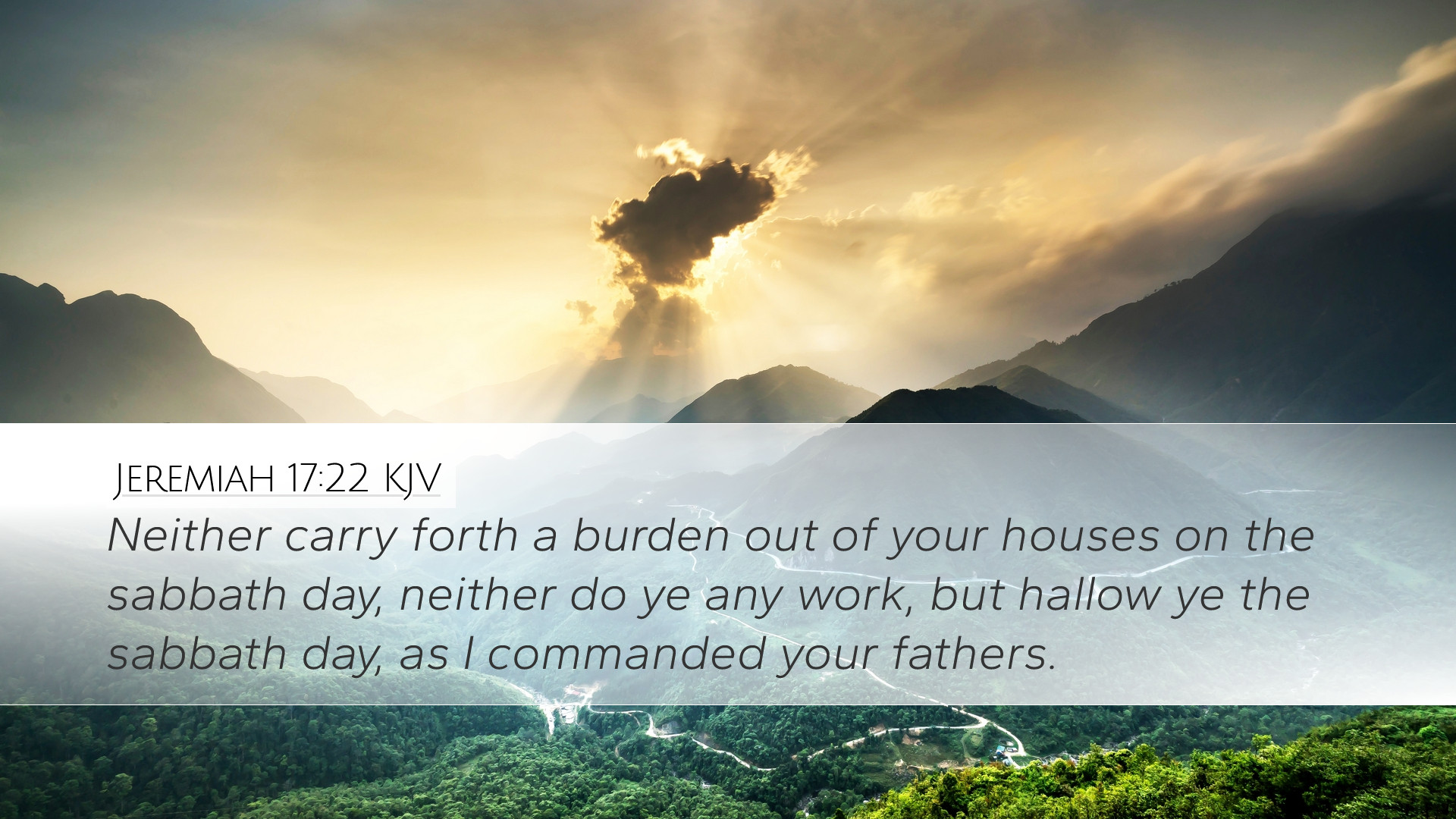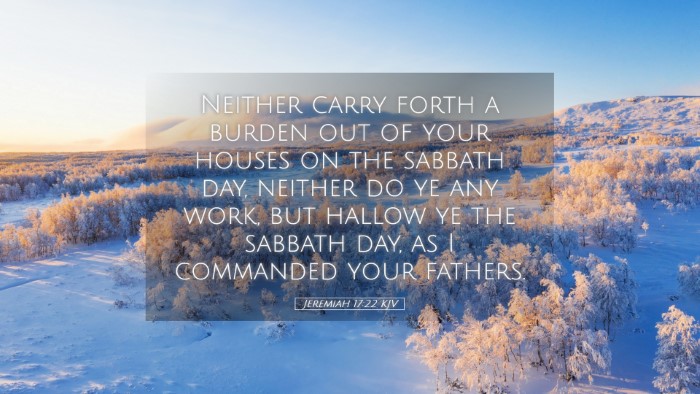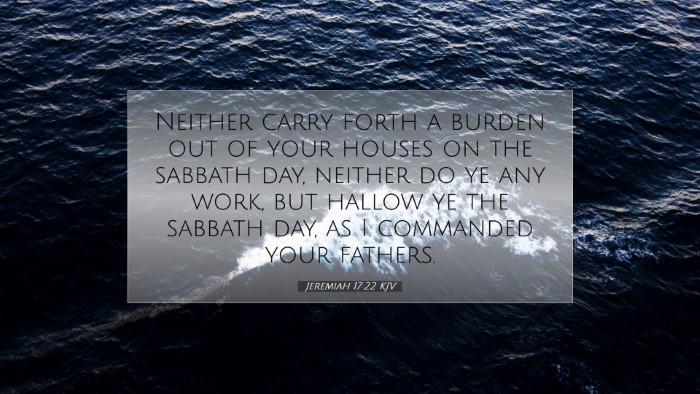Commentary on Jeremiah 17:22
Jeremiah 17:22 states, "Neither carry forth a burden out of your houses on the sabbath day, neither do ye any work, but hallow ye the sabbath day, as I commanded your fathers." This verse addresses the observance of the Sabbath and highlights the significance of rest and holiness enjoined upon the people of Judah.
Context and Background
Jeremiah prophesied during a tumultuous time for the Kingdom of Judah, where idolatry and disregard for God's laws were rampant. This verse comes within a larger passage wherein God through Jeremiah calls for repentance and emphasizes the importance of returning to the covenantal practices that ensure His blessings.
Theological Implications
Throughout the narrative of the Old Testament, the Sabbath serves as a sign of the covenant between God and His people. Observance is not merely about physical rest; it is deeply symbolic of spiritual rejuvenation and fidelity to God.
Insights from Public Domain Commentaries
Matthew Henry's Commentary
Matthew Henry emphasizes the dual nature of this commandment. He notes the importance of not only refraining from physical labor but also focusing on sanctifying the day as a means of glorifying God. Henry points out that carrying burdens is metaphorical for the burdens of sin and distraction from divine focus.
- Holiness of the Sabbath: He remarks that the Sabbath is a day set apart and should be honored above all other days. The people are reminded that their labor should not overshadow their devotion to God.
- Restoration and Renewal: According to Henry, this command is also a call to restore one’s spirit through holy contemplation and communion with God. It is a time for families to gather and reflect on divine grace.
Albert Barnes' Commentary
Albert Barnes considers the historical context of this command and its application. He points out that the Sabbath law was given to ensure that God's people would not lose sight of their dependence on Him. Barnes notes that the act of working on the Sabbath could lead to a broader neglect of God's commandments.
- Consequences of Disobedience: Barnes warns against the consequences of neglecting the Sabbath, linking it to a broader pattern of rebellion against God. The neglect would ultimately lead to divine judgment.
- Communal Responsibility: He also highlights the communal aspect of Sabbath observance. When individuals honor the Sabbath, the entire community is uplifted, fostering a culture of respect for God's decrees.
Adam Clarke's Commentary
Adam Clarke elucidates the practical aspects of the command. He expounds on the notion that carrying burdens is not just about physical items but also the emotional and spiritual baggage that can distract individuals from worship.
- Spiritual Burdens: Clarke emphasizes the importance of casting off all forms of burdens, including worries and anxieties, to fully engage in Sabbath rest and worship.
- Application for the Modern Believer: He suggests that modern Christians can learn from this verse by recognizing how everyday distractions can undermine their relationship with God. Sabbath, in this view, becomes not merely about a day off but a divine invitation to renewal and intimacy with God.
Applications for Pastors, Students, Theologians, and Scholars
The insights gleaned from this verse and the commentaries suggest several applications for the contemporary church and individual believers.
- Emphasis on Rest: Pastors can encourage their congregations to value spiritual and physical rest as a sacred practice that benefits all aspects of life.
- Teaching on Covenant Identity: Theologically, understanding the Sabbath as part of the covenant relationship with God can deepen believers’ appreciation of their identity in Christ.
- Resisting Modern Distractions: Students and scholars can explore the idea of Sabbath in today’s context, perhaps advocating for practices that encourage unplugging from constant busyness and distractions.
- Research on Community Dynamics: The communal aspect of the Sabbath observed in the commentaries can be a rich area of study for theologians, emphasizing corporate worship and community accountability in spiritual outcomes.
Conclusion
Jeremiah 17:22 stands as a powerful reminder of the importance of honoring the Sabbath in our lives. Through insights gleaned from Matthew Henry, Albert Barnes, and Adam Clarke, we see that the call to observe the Sabbath goes beyond mere physical rest; it requires sanctification, communal responsibilities, and a rejection of burdens that distract us from our relationship with God. As we engage with this text, may we find both challenge and encouragement to create spaces in our lives for holy rest that leads to spiritual renewal.


